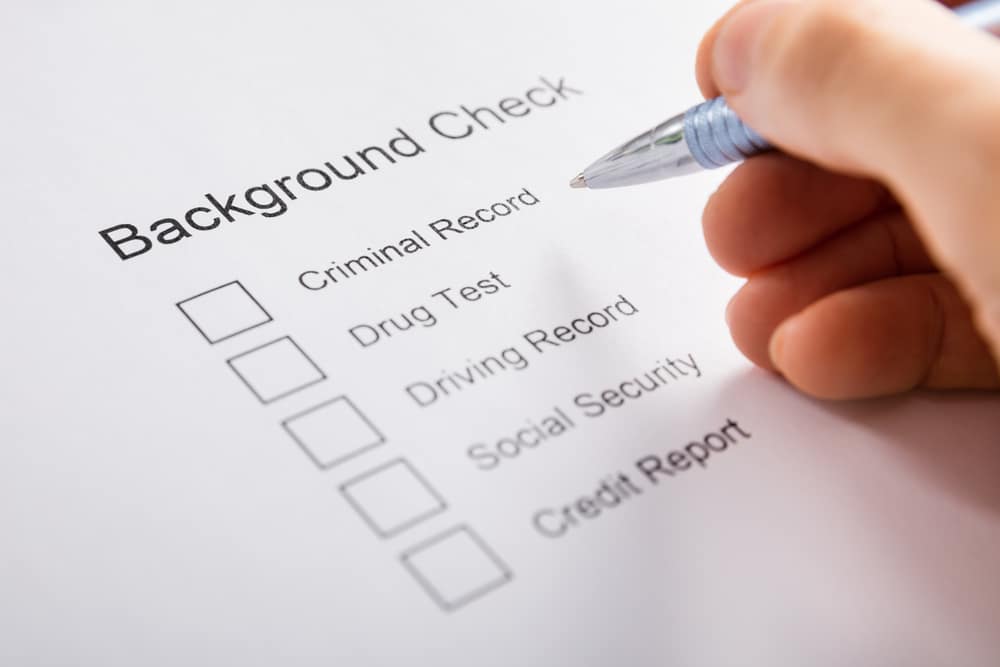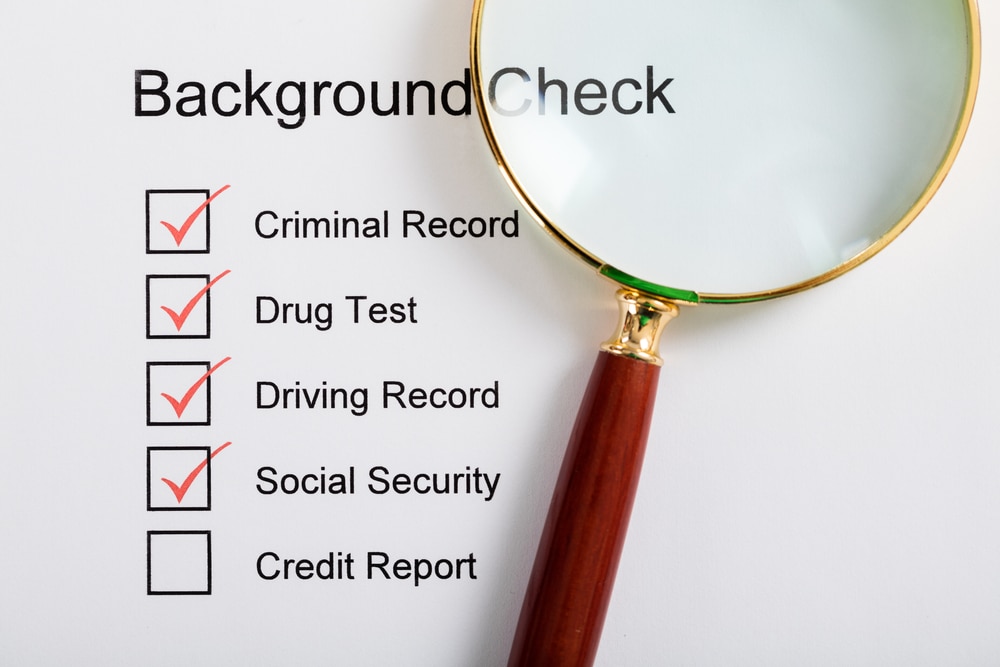What Is a Background Check? Everything You Need to Know
Cindy Ellis - September 8, 2022

Many individuals have heard of background checks or may have been asked to consent to one for an employer, but you may not know what exactly you should expect your background check to contain. It is important to understand what background checks are, as these reports are often a key part of the hiring process and usually have specific employment rights surrounding the information within them.
Our article aims to help you understand what a background check is, why it may be requested, and the type of information that can be found in one. We’ll also answer your most frequently asked questions about background checks so you can fully understand what to expect during the background check process.
Background Check Basics: What You Need To Know
Background checks can be confusing for many individuals, so it is essential to review the below basics about these reports. These simple bullet points can help you understand more about background checks before you dive into the rest of the information in our article.
- Background checks are reports that are returned to the requesting organization (most commonly, this is a government organization or an employer) that provides information on your personal and professional history. The information on a background check is obtained from public records, criminal records, and other civil information records.
- Background checks include criminal and civil history information, prior employment information, and driving records, among other vital information that individuals or hiring organizations might be interested in knowing or confirming.
- Your employer may be able to rescind a job offer dependent on the results of an employment background check, but this depends on state laws and legal hiring practices.
- You can access a background check on yourself to review the information included on it and check if there is anything that might be of note to an employer or organization ahead of time.
Always keep in mind that there are specific laws surrounding the information obtained in background checks; for more information, consult with a legal professional in your state.
When Are Background Checks Useful?
Background checks are useful for several reasons, and it doesn’t have to only be employers that benefit from these reports. For example, you can use a background check to verify an individual’s criminal history, such as a potential partner or new neighbor.
Additionally, employers utilize background checks to ensure that individuals are suited for specific occupations or opportunities, and background checks may be used to prevent legal issues down the line for a company or organization.
It is important to note that you cannot use any of the information obtained on a background check to harass the individual in question or commit a crime, and there are also certain laws surrounding hiring practices where background checks are involved. Employment laws surrounding background checks are highly state-specific, so you should look up local laws or speak to a legal professional for more information on what an employer can do with the information obtained from a background check.
What Shows Up on a Background Check?
What your specific report shows depends on the type of background check ordered by the employer or organization. In most cases, background checks show things like criminal history including convictions, civil records such as lawsuit involvement, marriage, divorce, and bankruptcy records; driving records and DUI convictions or misdemeanors; drug and health history; and employment verifications.
Your background check may also show your history of previous addresses, known associates or relatives, and certain international convictions or information, depending on the type of background check requested.
Make sure to speak with the organization or agency asking for your background check to understand which information might become available via your background report. You can also perform a background check on yourself to anticipate what will be seen.
Understanding Different Types of Background Checks
A few different types of background checks can be performed, and may search for different aspects of your history. Below, we list the various types of background checks that an employer or organization might require you to submit depending on your location, job type, and any special situations.
- Criminal background checks
- Civil background checks
- International background checks
- Motor vehicle record checks (also sometimes known as driving background checks)
- Drug, substance, and health background checks
- Employment verifications
For the most part, criminal and civil background checks are the most common type of background checks that individuals are required to take. However, drug and motor vehicle record checks are also prevalent, and some background checks will include all pertinent civil, criminal, employment, drug, and driving history reports.
How to Perform a Background Check
When you are asked to take a background check, most employers or other organizations will direct you to their preferred online or in-person system that can produce a background check report. Receiving a background check like this can take three to five business days or up to a week or more, depending on your location and the agency performing your background check.
For faster background check results and to perform a background check on yourself, you can use a website such as Information.com to verify your background check report and review what’s included in it ahead of time.
To perform a background check with Information.com, simply search your name, or another individual’s name, in addition to the city and state of residence. The results of your search will return a comprehensive report, which includes all vital information without the long turn-around times that are often required of background checks received through third-party agencies.
Background Check FAQs

Background checks can be hard to understand, especially if you aren’t sure what will or won’t show up on yours. Review the frequently asked questions about background checks below for more clarity on what background checks contain.
Do Background Checks Show DUIs?
DUIs are considered crimes, and a conviction for a DUI will show up on a background check or a motor vehicle record check. However, if a DUI case is still pending and awaiting conviction, it may be left out of your background check, depending on state laws, until a conviction is received.
There are laws surrounding hiring practices when considering DUIs, and employers are often encouraged to consider the type of job and the individual’s duties instead of simply rejecting every candidate that applies who may happen to have a DUI. For more information, research your state’s employment laws surrounding DUIs or speak to a legal professional.
Do Background Checks Show Misdemeanors?
Misdemeanors are crimes that carry less than a year of jail time as a sentence or involve other types of punishments like community service or fines. They are most often due to minor crimes, but they still have a chance of showing up on your background check because they are crimes.
Occasionally, misdemeanors tried and convicted at the county level do not show up on state or international-level background checks, but this depends on the jurisdiction in which it was received and the organization requesting the background check.
Are Arrest Records Part of Background Checks?
Arrest records may show up on your background check, but this depends on the state that you are in. In some cases, arrests at most seven years old will be visible on your background check even if they didn’t result in a conviction. Employers may also be able to see the case status (i.e., whether the charges are pending, dropped, or if there was a conviction).
However, some states don’t allow the review of arrest records as part of hiring criteria. So you should perform specific searches on your state’s hiring and employment laws to see whether arrest records will be included in your background check.
Will Warrants Show Up on a Background Check?
Warrants that haven’t been executed yet, such as a basic search warrant or a bench warrant, won’t typically show up on background checks. Only executed warrants that result in arrests or charges appear on your background check.
Are Expunged Charges Included in Background Checks?
An expunged charge is one that has been removed from your record. Typically, this happens when an individual has been arrested and charged with a crime but was not convicted of the crime. These charges can be wiped from the individual’s record permanently, meaning that the record of the arrest and charge will be sealed and will not appear on your background check. More information about expunged charges can be found here.
Will a Restraining Order Appear on a Background Check?
Restraining orders are typically considered a civil matter and won’t normally appear on a background check. However, certain jobs with the U.S. government may perform more in-depth checks that turn up a restraining order, even one that has lapsed. You should remember that violating a restraining order often results in a criminal charge, which will likely appear on a background check.
Can I Run a Background Check on Myself?
If you aren’t sure what will appear on your background check or want to verify what your background check says, you may wonder if you can run a background check on yourself. Fortunately, this is an easy process to complete and can help you stay informed about what your report says so that nothing catches you by surprise.
The easiest way to run a background check on yourself is to use the background check tool with Information.com. Data is pulled from third-party sources and public records to create a report detailing your criminal and civil record history, prior addresses and employers, and information such as marriage and divorce records. You can then review this report and look for any items that may be of concern.
Will a Background Check Interfere With Employment Opportunities?
Whether or not your background check interferes with an employment opportunity depends on the job you are applying for, your employer, and the employment rights in your state. In some cases, an employer can make a job offer contingent on passing a background check; in others, there are waiting periods before an employer can make an employment decision based on the results of a background check.
You can read more about your employment rights regarding background checks here. If you suspect you have been discriminated against or wrongfully denied an employment opportunity, then you should be talking to an employment law professional in your state.
The Importance of Background Checks
While many people may worry about what their background check will turn up, you shouldn’t stress over the process too much. Background checks are used to verify a potential employee’s history, double-check on criminal behavior or charges, or verify the safety and suitability of an individual for a specific opportunity or job. Background checks are important for employers and individuals who need to know more about a specific person’s history.
That being said, if you have items you suspect could turn up on your background check and cause problems, don’t wait to discuss these with the employer or organization running your background check. And if you aren’t sure what your report will include, use our lookup tools on Information.com to run a search on yourself and carefully review your results so you can stay informed.






